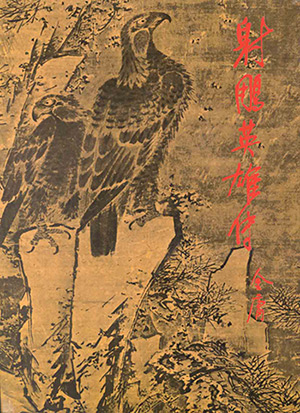
No one can be Chinese, wherever they are in the world, and be ignorant of Louis Cha, better known as Jin Yong, if only because television production companies insist on making a new version of a series based on one of novels every few years. I’ve always personally regretted not having ever learned Chinese well enough to comfortably read the original novels. After all, I was into comic-book superheroes, sword and sorcery adventures and space opera. Kung fu fighting heroes and heroines in a fantasy version of ancient China seemed like a perfect fit.
As such, I considered it a great tragedy how few of the books were actually translated into English and how ridiculously expensive the translated books are. For example, The Deer and the Cauldron as translated by John Minford and published by Oxford University Press costs about USD$30.00 for each of the three volumes. Not one of the three novels that comprise the Condor Trilogy, probably Louis Cha’s most well known work, has been officially translated. In general, this lacuna is true as well for other wuxia writers like Gu Long, Liang Yusheng and Wang Dulu (writer of the book upon which the film Crouching Tiger, Hidden Dragon was based.)
Fortunately however, in the age of the internet, wherever officialdom fails, legions of enthusiasts volunteer to fill in the gap. Through collaborative websites like Wuxiapedia and the wuxia forums at Spcnet.tv, volunteers have, bit and bit, translated many of the works into English. Just last week, Spcnet.tv forum member pokit posted the last chapter of Smiling Proud Wanderer. This means that of Louis Cha’s major works, only Demi Gods, Semi- Devils and Heavenly Sword, Dragon Slaying Sabre remain untranslated, and HSDS is being actively worked on.
Translations of works by other writers are also available including famous ones like Gu Long’s The Legendary Siblings, Sentimental Swordsman, Ruthless Sword (perhaps better known as Little Li’s Flying Dagger) and the first three books of the adventures of Lu Xiao Feng. Partial translations include Wang Dulu’s The Crane Startles Kunlun, Huang Yi’s A Step into the Past and Wen Rui’an’s A Spear of Alarm.
Having finally had the opportunity to actually read some of these works, I find it interesting how different they are, though I suppose that shouldn’t be too surprising. Louis Cha’s stories are the closest to classical heroic journeys, with a young protagonist starting out weak and inexperienced and gaining in power and skill as he adventures. The plots tend to be fairly straightforward, with colourful characters and a strong emphasis on action scenes described in detail. On the other hand, I found Gu Long’s writing to be more psychological and dark with plots about investigations of crimes or mysteries. Fighting scenes are described sparsely or not at all since fights tend to be over in the blink of an eye.
Wang Dulu’s The Crane Startles Kunlun I found to be surprisingly down-to-earth, with an eye to detail about the realities of everyday life in ancient China. Both Jin Yong and Gu Long’s heroes routinely perform superhuman feats, but Wang Dulu’s characters may be skilled but aren’t supermen. Finally, after having read about how Huang Yi tries to combine science fiction and wuxia in his work, and after having watched the TVB adaptation of A Step into the Past starring Louis Koo, I was curious about what the book itself was like. I was disappointed that it read like pornographic fan fiction.
Other than the translations, Wuxiapedia has a research section that has a number of very interesting essays on the historical and cultural background of the many wuxia stories. Spcnet.tv also maintains an active forum discussing all manner of things related to wuxia. It’s pretty cool what these people are doing and I hope that their translations stay on the net forever so that anyone can read them. Now, even people who can only read English can join in the endless discussions about important topics like whose 18 Dragon Subduing Palms are the best and if Guo Jing and Yang Guo fought, who would win?